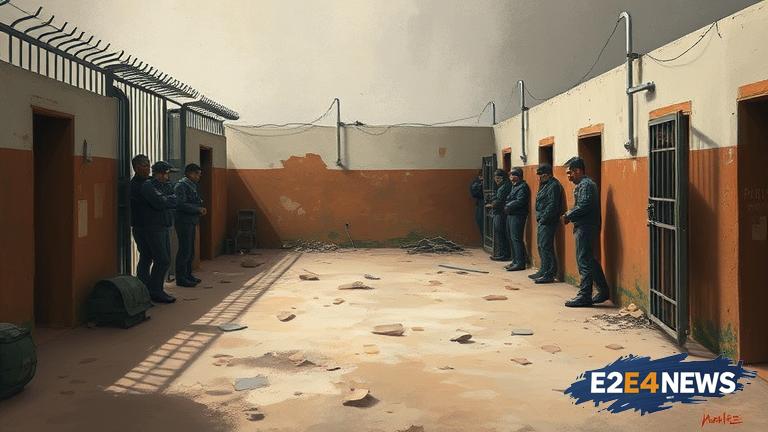The plight of Palestinian prisoners in Israeli jails has been a longstanding issue, with many facing harsh conditions, including medical neglect, torture, and isolation. Despite international condemnation, the situation remains dire, with prisoners often being denied basic rights and subjected to inhumane treatment. The Israeli prison system has been criticized for its use of solitary confinement, with many prisoners being held in isolation for extended periods. This has led to a range of psychological and physical health problems, including depression, anxiety, and even suicidal tendencies. Furthermore, prisoners are often denied access to medical care, with many being forced to rely on inadequate and unqualified medical staff. The use of torture and other forms of ill-treatment is also widespread, with many prisoners being subjected to physical and psychological abuse. The situation is particularly dire for Palestinian prisoners, who are often arrested and detained without charge or trial. Many are held under administrative detention, which allows for detention without charge or trial for periods of up to six months, renewable indefinitely. This has led to a range of human rights abuses, including the detention of minors, women, and other vulnerable groups. The international community has been vocal in its condemnation of the situation, with many organizations and governments calling for an end to the use of administrative detention and the release of all Palestinian prisoners. However, despite these calls, the situation remains unchanged, with many prisoners continuing to face harsh conditions and human rights abuses. The Palestinian Authority has also been critical of the situation, with many officials calling for an end to the occupation and the release of all Palestinian prisoners. The issue of Palestinian prisoners is a highly emotive one, with many Palestinians seeing it as a symbol of the ongoing occupation and the struggle for freedom and self-determination. The situation has also been the subject of widespread protests and demonstrations, both within Palestine and internationally. Many organizations, including human rights groups and solidarity movements, have been active in highlighting the issue and calling for action. Despite the challenges, many prisoners have continued to resist and defy their captors, with many engaging in hunger strikes and other forms of protest. The use of hunger strikes has been a particularly effective tactic, with many prisoners using it to draw attention to their plight and to push for improved conditions. However, the Israeli authorities have been quick to respond, with many prisoners being force-fed and subjected to other forms of punishment. The situation is a complex and multifaceted one, with many different factors at play. However, at its heart, it is a simple issue of human rights and dignity, with many prisoners being denied basic rights and subjected to inhumane treatment. The international community has a responsibility to act, to call for an end to the use of administrative detention and the release of all Palestinian prisoners. Only through collective action and solidarity can we hope to bring about change and to ensure that the rights and dignity of all prisoners are respected. The situation is a stark reminder of the ongoing occupation and the struggle for freedom and self-determination that continues to this day. It is a reminder that the struggle for human rights and dignity is ongoing, and that it requires the collective efforts of us all. The Palestinian prisoners’ issue is a symbol of the broader struggle for Palestinian rights and freedom, and it is an issue that will continue to be a major focus of attention and activism in the coming years.
